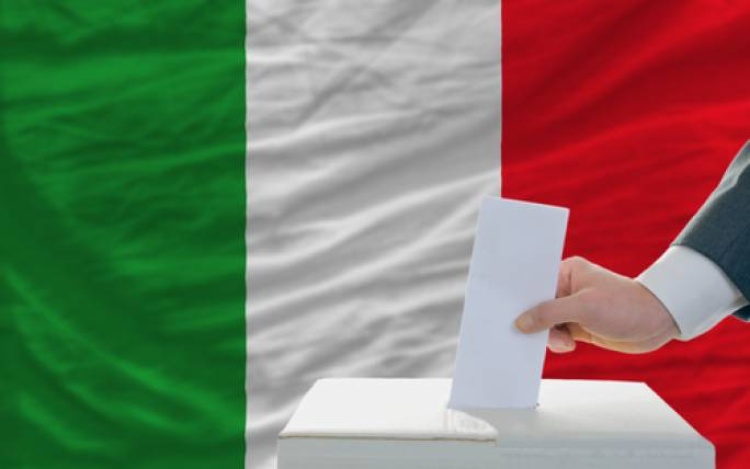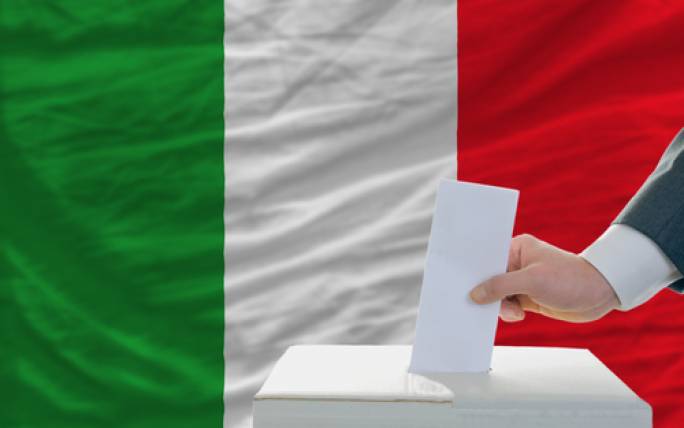The election falls on Sunday, as is the norm in Italy, to allow the largest proportion of eligible voters to have their say.
However, it’s not only Italians who are physically able to take to the polls that are allowed to cast their votes.
If you are an Italian citizen living in abroad, here’s all you need to know about the Italian election and how you can vote.
What does this election mean?
The March 4 election is a result of Italy’s new electoral law, dubbed “Rosatellum”.
The introduction of the new law has its roots in former prime minister Matteo Renzi’s resignation after staking his job on a set of constitutional reforms which were rejected in a humiliating national referendum held in late 2016.
Mr Renzi’s party colleague Paolo Gentiloni was made a “caretaker” prime minister when he stepped into the role in 2016, but in December he completed a year in the position.
This wasn’t just a problem for Mr Renzi, but for the country’s political system.
After months of debate, “Rosatellum” was passed in late October thanks to a suspicious agreement between Mr Renzi, Silvio Berlusconi and Matteo Salvini, and despite fierce opposition from the Five Star Movement (M5S) and radical leftists.
One crucial feature of the new law is that it favours parties which build alliances, something the M5S has always strongly opposed.
The movement has accused the new law of being “rigged” against it.
Which major parties are running?
Partito Democratico (PD)
The Democratic Party is Italy’s current ruling party, led by Mr Renzi.
The PD was founded on October 14, 2007, upon the merger of various centre-left parties.
Following the 2013 general election and the 2014 European Parliament election, the PD is the largest party in the Chamber of Deputies, the Senate and the European Parliament.
Consequently, from 2013 the Italian government has been led by three successive Democratic prime ministers: Enrico Letta, Mr Renzi and the current prime minister, Mr Gentiloni, none of them appointed through a regular election.
As of November 2017, Democrats head thirteen regional governments out of twenty and function as coalition partner in Tuscany and Trentino-Alto Adige/South Tyrol.
The PD is a big tent centre-left party, influenced by the ideas of social democracy and the Christian left.
The party stresses national and social cohesion, progressivism, a moderate social liberalism, green issues, progressive taxation and (pro-)Europeanism.
Movimento 5 Stelle (M5S)
The Five Star Movement is one of Italy’s most recent and controversial major parties.
The movement was founded by Beppe Grillo, a popular comedian and blogger, and the late Gianroberto Casaleggio, a web strategist, on October 4, 2009.
In September 2017, Vice President of the Chamber of Deputies, Luigi Di Maio was elected as “political head” of the movement, replacing Mr Grillo as its leader.
The M5S is considered populist, anti-establishment, environmentalist, anti-globalist, and Eurosceptic.
The “five stars” are a reference to five key themes for the party: public water, sustainable transport, sustainable development, right to Internet access, and environmentalism.
Despite being widely considered as anti-EU, the M5S has increasingly softened its stance on the EU and euro, with the movement’s new leader recently stressing: “We want to stay in the EU.”
Two party members, Virginia Raggi and Chiara Appendino, were elected mayors of Rome and Turin, respectively, in 2016.
While the M5S is currently leading the polls, its refusal to join a coalition with any of the traditional parties means it’s almost impossible that it would be able to form a government.
Forza Italia (FI)
Forza Italia is a centre-right political party in Italy with liberal-conservative, Christian-democratic, liberal and populist tendencies.
Founded on January 18, 1994, the party is led by controversial businessman-turned-politician Silvio Berlusconi, who has been elected as prime minister four times.
The one coalition which could reach an outright victory alone in the upcoming election - requiring 40 percent of the total vote - is the centre-right.
Mr Berlusconi is currently barred from public office as a result of a conviction for tax fraud which saw him shunned from parliament in 2013, but he is hoping to have the ban lifted.
Liberi e Uguali (LeU)
Free and Equal is a left-wing political alliance of parties in Italy, launched on December 3, 2017, by the Democratic and Progressive Movement, Italian Left and Possible.
The leader of the alliance is Pietro Grasso, President of the Senate and former anti-Mafia prosecutor, who was also a member of Mr Renzi’s PD until he split from the party last year.
The PD was long driven by an internal struggle between Mr Renzi’s large majority and the left-wing factions, which were very critical of the leader, his government and his proposed constitutional reform.
This led to the disintegration of the party and the formation of the LeU.
What is the predicted outcome?
Given that the new electoral law favours coalitions, and the fact that no party looks set to receive 40 per cent of votes outright, experts claim it’s extremely difficult to predict who will be ruling Italy after the election.
Economic analyst Lorenzo Codogno said it was almost a “certainty [that] no one is going to win an outright majority in parliament”.
At this point, there are two possible outcomes: if Mr Berlusconi’s centre-right coalition comes out on top by number of votes, there is a good chance that he and Mr Renzi will try to form a Large Coalition (German-style) to lead the government, confirming Mr Gentiloni’s position as prime minister.
On the other hand, if the M5S gains the largest number of votes, the movement will most likely present its program and call on the support of the LeU.
How can I vote abroad?
Italian citizens living abroad can also participate in the election, and will be called on to elect their relevant representatives in the Chamber of Deputies and the Senate, voting for the candidates which represent their overseas electorate.
The local candidates will be announced at the end of January.
Italians living abroad and registered in the electoral lists of overseas electorates can vote via post, and will have the voting forms sent to their current postal address.
It is therefore important that those willing to vote verify their personal details and address with the relevant consulate.
For more information on how to vote, visit the Italian Ministry of Foreign Affairs' website, or the website of your relevant consulate.












